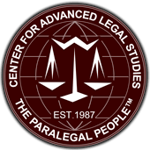 There is no place for inaccuracy on a resume or application, whether by fabrication, embellishment, or omission. Don’t make stuff up, twist information, or distort details to gain an advantage. This constitutes professional fraud. While a company is unlikely to pursue legal action in response to a bad-faith misrepresentation, it can be at risk of legal liabilities related to negligent hiring practices in some instances. Purposeful inaccuracies discovered on a resume will almost always result in a candidate being removed from the hiring pool. Any deception discovered post-hire, even many years into tenure, may also result in termination.
There is no place for inaccuracy on a resume or application, whether by fabrication, embellishment, or omission. Don’t make stuff up, twist information, or distort details to gain an advantage. This constitutes professional fraud. While a company is unlikely to pursue legal action in response to a bad-faith misrepresentation, it can be at risk of legal liabilities related to negligent hiring practices in some instances. Purposeful inaccuracies discovered on a resume will almost always result in a candidate being removed from the hiring pool. Any deception discovered post-hire, even many years into tenure, may also result in termination.
Below are 10 ways job seekers commonly adulterate their resumes and applications:
- Misrepresent prior employment or duration
- Omit jobs or the reasons for leaving them
- Falsify job titles or responsibilities
- Overstate involvement in or contributions to a project
- Exaggerate the level of education attained
- Claim to hold a degree, certification, or licensure not earned
- Inflate mastery of skills and abilities
- Assert conversational knowledge of a second language as fluency
- Overinflate salary history
- Give fake references
Employers can verify if resume content is more fiction than fact. This is often done by way of a pre-hire assessment, task, or project. It would be challenging to pass a screening test when job-related skills are lacking. However, if hired, individuals who misrepresent themselves on their resumes may find they perform poorly in the role. This could result in disciplinary action and dismissal. It can be an awkward and embarrassing situation for all parties involved. It damages reputations, fosters a negative work culture, is unfair to candidates who did not fabricate their resume details, increases hiring and training costs to replace terminated employees, and reduces future opportunities to get hired.
Do Not Lie! It is not only unethical and a betrayal of trust, but it will also frequently be discovered. Hiring managers can verify educational credentials, licensures, job titles, dates of employment, criminal history, creditworthiness, and more through an employee background check. Online profiles and social media outlets can also be used to verify identity and credibility. Guidelines to ensure you have a positive and professional online presence can be reviewed at: https://www.paralegal.edu/blog/social-media-keep-it-professional-or-keep-it-private
You can add value to your resume honestly and give yourself a competitive edge even if your background and experience do not align entirely with all the job requirements. Take the time to apply if you meet the core competencies. Employers seek an “ideal candidate.” They provide the parameters and guidelines. Think of these as a “wish list.” But remember, no candidate is perfect. There is always a learning curve when anyone starts a new position. Even if you do not have every skill listed in the job posting, there may be transferable skills that you can adapt to fit the role. Focus on the knowledge and experience you do have and provide details that show how those can bridge the gap between the skills you possess and what an employer is looking for.
Here are 10 “fluff-free” ways to show employers what you can offer if you are hired:
- Do identify your skills and abilities relevant to the job posting; show evidence of capabilities that enable a prospective employer to envision you growing in their role.
- Do showcase your background and experience; focus on roles, responsibilities, achievements, and any work performed outside the scope of your previous positions.
- Do add quantifiable measures of your contributions that had a material impact and their benefit; did you train others to reduce staffing needs, lower costs, save money or time, leverage new tools or technology, help turn around an inefficient process, etc.?
- Do indicate any ancillary support you provided to executives or teams and what you learned.
- Do feature top accomplishments, promotions, and awards that highlight past success.
- Do highlight academic credentials, career development, and self-improvement courses.
- Do list professional affiliations and memberships.
- Do have an explanation for any gaps in employment.
- Do include any volunteer and internship experience in support of your ability to perform in a new position; as long as you don't label it "work experience" or "employment" you aren't lying.
- Do use the FAB approach to show precisely how you can improve or add value to an organization. https://www.paralegal.edu/blog/why-should-we-hire-you-give-a-fab-response
Your resume is the most important document in your search for a new job. It is your initial contact with a prospective employer and an opportunity to give a positive first impression. Putting in the time, energy, and thought to make sure it resonates value, without deceit and half-truths, will demonstrate that you are a candidate who will give attention to the work expected and not take shortcuts to a desired outcome.
Center for Advanced Legal Studies offers programs and services that help students and graduates reach their career goals during their time in school and long after. To learn more about these programs and the services available contact us at www.paralegal.edu to schedule a consultation.
 |
Tami Riggs Director of Outreach and Career Services Tami has an extensive and varied professional background that spans criminal justice, paralegal education, and international school marketing and communication. Her career has been guided by a focus on developing strategic partnerships that facilitate school growth and student opportunity. She holds a Bachelor of Science Degree in Criminal Justice from Texas State University. |












